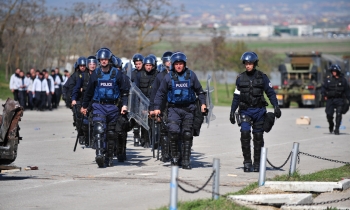Traditional authorities in Swaziland continue to harass and intimidate the media, particularly in instances when the Swazi monarchy faces criticism, according to the Media Institute of Southern Africa (MISA).
On June 14, the traditional governor, Jim Gama, who is regarded as the traditional prime minister, launched a scathing attack on the print media and threatened journalists for what he claimed was "negative reporting" on a national gathering called by King Mswati III at Ludzidzini royal kraal, the traditional capital.
Without specifying any media outlet or journalist, Gama accused the print media of having reported negatively about the national gathering, where people had been called to debate national issues under a forum called "Peoples' Parliament".
Speaking in the presence of King Mswati III, Gama, in his threats, said the offending journalists should be punished using "umphini", which in Swazi traditional folklore is tantamount to capital punishment.
Gama, addressing the King, said: "Your Majesty, you gave them the freedom to write and with that freedom they are now disrespecting you. You want the same people who are in this kraal to buy that paper that has created a wrong picture about that is happening here."
He said the newspaper instead should have reported that the royal kraal was filled to the brim (in response to the King's summons) and that Swazis loved their king.
The threats coincided with an impassioned apology which the privately-owned Times of Swaziland newspaper published on June 15, following a story that appeared on June 13, which claimed that government was to use a 15 million Euro allocation to pay for the national gathering. The budget allocation is reserved for national celebrations.
In its apology, the Times of Swaziland said the story created the impression that the national gathering, which lasted three days, would consume the entire 15 million Euros. The newspaper apologised profusely to the monarchy and traditional authorities for the "wrong" impression created by its article.
This new threat against the media comes as the MISA-Swaziland chapter completes a study on censorship in Swazi newsrooms. The study, conducted on behalf of MISA-Swaziland by a journalism professor of the University of Swaziland, found that the monarchy was by far the main threat to press freedom in Swaziland, being responsible for most of the direct censorship taking place in Swazi newsrooms.
As a result of constant intimidation by the King and his circle of traditional advisors, the media in Swaziland are too scared to criticise the King or anything connected or close to him.









